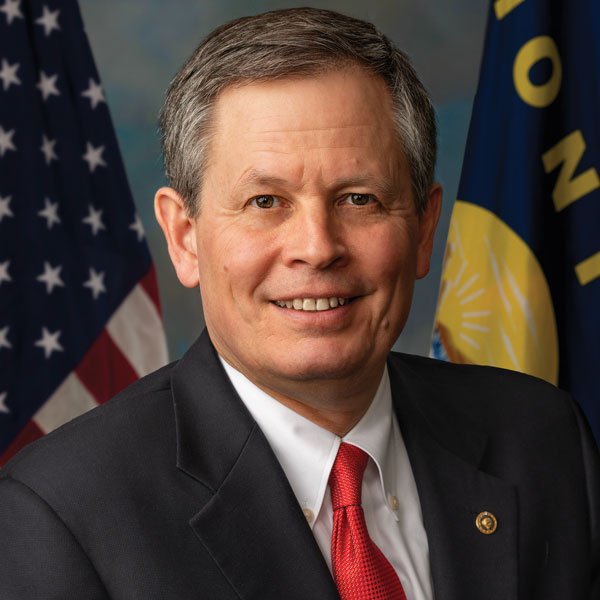Interview by Jim Brown, MIB Executive Director

You were recently reelected to the U.S. Senate for another six-year term. What do you hope to accomplish during the coming six years?
It’s an honor to serve Montana in the United States Senate. Heading into a new Congress, my priority is to protect the Montana way of life, which includes defeating the pandemic and getting life back to normal as quickly as possible. This means working to ensure every Montanan who wants a vaccine can get one. I’m also pushing back against President Biden and his far-left, radical agenda we’re seeing unfold before our eyes. This includes his job-killing, anti-American energy agenda like canceling the Keystone XL pipeline and saddling community lenders with unreasonable and unmanageable regulatory burdens that do nothing to reduce systemic risk in the financial industry.
You were recently appointed to serve on the very powerful Senate Banking, Housing and Urban Affairs Committee. How did you get that appointment, why did you want that committee appointment, and what do you think are the biggest challenges facing community banking in the next five years?
Every two years, when a new Congress starts, members get their committee assignments. This Congress, I was very excited to be selected to the Senate Banking, Housing and Urban Affairs Committee. I’m ready to dive in on important issues under the Committee’s jurisdiction, including access to capital, promoting responsible monetary policy from the Federal Reserve, and increasing jobs and wages for everyday Americans. I’m concerned about the Democrats’ desire to raise taxes and regulations that would hurt community banks. Community banks have been on the front lines of supporting small businesses and our communities in the face of COVID-19 since April of 2020 and are continuing to work overtime to deliver aid through the Paycheck Protection Program. I plan to be a voice for these community lenders and ensure that their hard work is not forgotten and that new regulations will not harm these institutions.
What federal legislation or regulation do you believe will impact community banking during this session of Congress?
I’m excited to be leading the bipartisan “SAFE Banking Act” with my colleague Senator Merkley, which will prevent federal regulators from penalizing banks and other financial institutions for providing banking services to legitimate cannabis-related businesses. This bill will help create Montana jobs, boost local economies, support small businesses and promote public safety. Our legislation will give small businesses the certainty of putting their money into the banks and help them begin operating above the table.
In your opinion, what is the best approach for the regulation and capital requirement standards of small banks as compared to what is often referred to as the ‘too big to fail’ financial institutions?
Regulation needs to be based on an institution’s risk profile. The comparison here is not apples-to-apples, so we must treat small banks differently. I will be working with my colleagues to make more progress on this issue and put in place safeguards to prevent the rolling back of the regulatory relief that Congress achieved in 2018 through the Economic Growth, Regulatory Relief, and Consumer Protection Act.
Based on your own business experience and based on your previous knowledge of serving in the U.S. Senate, are there any steps that Montana’s community banks could take to raise their profile on Capitol Hill or to enhance their influence among banking regulators?
2020 was a tough year. Thankfully, I learned a lot from folks on the ground impacted by the pandemic and was able to frequently share concerns of Montana’s bankers directly with Treasury Secretary Mnuchin and SBA Administrator Carranza. I plan to continue providing this type of leadership and work with the Biden Administration to benefit Montana community banks when I can and push back when I think the Biden administration’s actions will hurt Montana banks. In addition to contacting my staff and me, you should always raise issues with your trade association, who are in regular contact with my staff and their national association.







